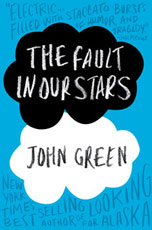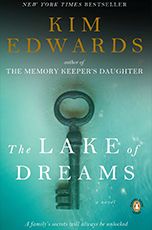New Release: The Fault in Our Stars
 By John Green
By John Green
Dutton Juvenile | 336pgs
Release Date: January 10, 2012
Summary:
Award-winning young adult author John Green addresses the serious issues of sickness and death in his latest novel The Fault in Our Stars. Protagonist Hazel Lancaster is a teenager grappling with her terminal cancer diagnosis when she meets Augustus Waters in a cancer support group. Their shared enthusiasm for ultra-violent video games and Dutch author Peter van Houten fosters a love that grows despite their illnesses. Told with a spark of humor to balance the gravity of the subject matter, Green crafts a story that is both heartwarming and heartbreaking.
In a recent interview with Entertainment Weekly, the author discussed his decision to write about such a serious topic. “When I first graduated from college, I worked as a chaplain at a children’s hospital for about five months. While I was there, I saw a lot of young people with cancer and other serious diseases, and I was struck by how different they were from my expectations. The culture surrounding sick kids tends to tell us they are either going to be these fountains of wisdom or they are going to be these sad-eyed, terrible tragedies — the truth is a lot more complex than that. Sick kids are a lot like other people. I learned that during my time at the hospital and also the next 10 or 11 years trying to reflect it in fiction. Then in 2008 I met a young woman who had cancer who was a reader of my books, and through knowing her it became possible to write the story,” said Green.
When asked about the challenges of writing the book from the perspective of a teenage girl, Green replied: “It wasn’t uncomfortable for me at all. Maybe it should have been. It was a little uncomfortable for me when I was reading the audiobook — that was a little awkward. [Laughs] I never thought I would write a female narrator. For whatever reason, I didn’t feel like I was writing a female narrator — I felt I was writing Hazel. I felt very, very close to Hazel and deeply empathetic to her. You know, I hate it when writers say this — I think it’s the most pretentious thing in the world — but unfortunately it’s true in this case: I did not feel as if I were writing her. I felt like she was kind of taking care of herself.”

